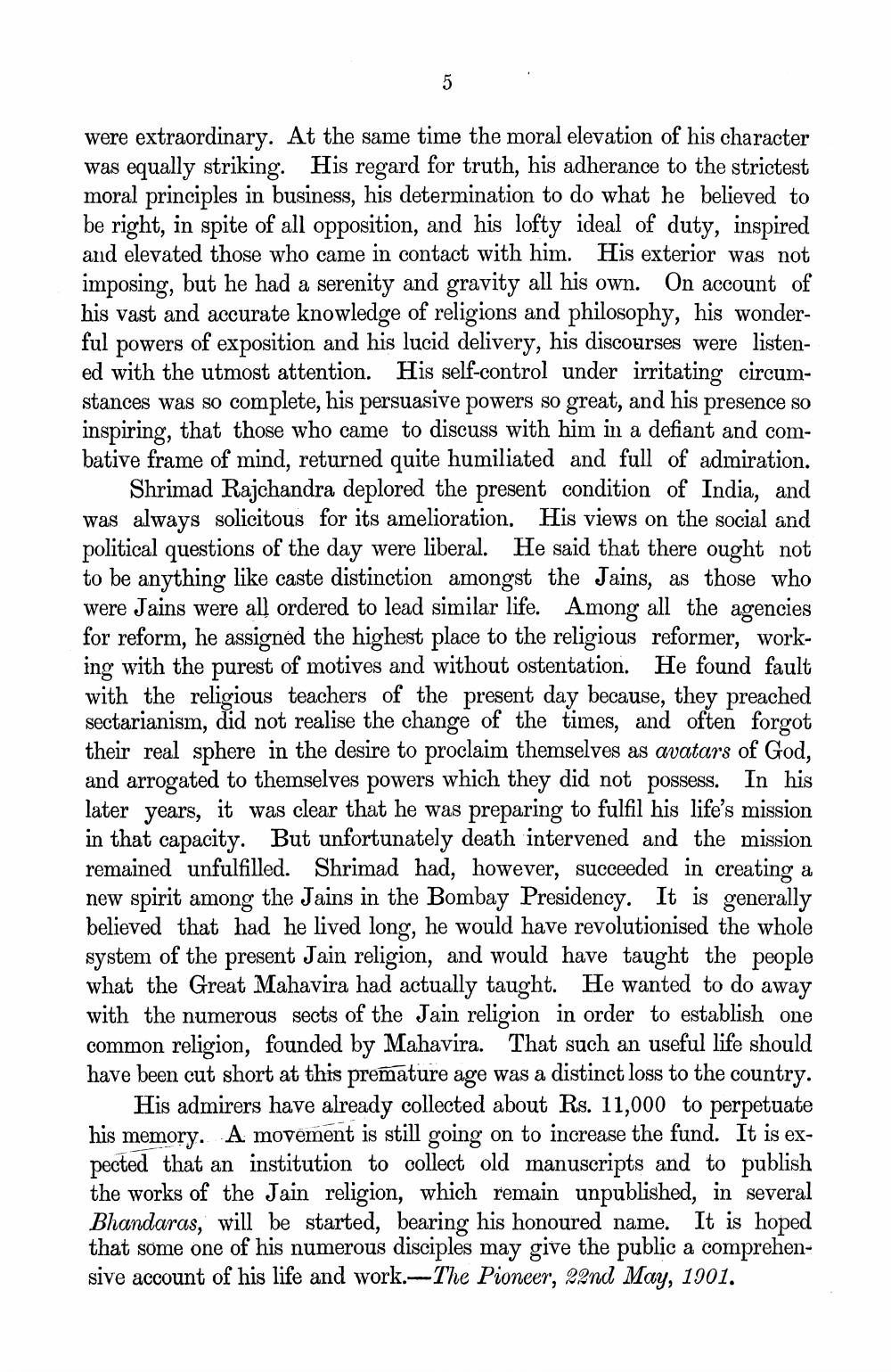________________
were extraordinary. At the same time the moral elevation of his character was equally striking. His regard for truth, his adherance to the strictest moral principles in business, his determination to do what he believed to be right, in spite of all opposition, and his lofty ideal of duty, inspired and elevated those who came in contact with him. His exterior was not imposing, but he had a serenity and gravity all his own. On account of his vast and accurate knowledge of religions and philosophy, his wonderful powers of exposition and his lucid delivery, his discourses were listened with the utmost attention. His self-control under irritating circumstances was so complete, his persuasive powers so great, and his presence so inspiring, that those who came to discuss with him in a defiant and combative frame of mind, returned quite humiliated and full of admiration.
Shrimad Rajchandra deplored the present condition of India, and was always solicitous for its amelioration. His views on the social and political questions of the day were liberal. He said that there ought not to be anything like caste distinction amongst the Jains, as those who were Jains were all ordered to lead similar life. Among all the agencies for reform, he assigned the highest place to the religious reformer, working with the purest of motives and without ostentation. He found fault with the religious teachers of the present day because, they preached sectarianism, did not realise the change of the times, and often forgot their real sphere in the desire to proclaim themselves as avatars of God, and arrogated to themselves powers which they did not possess. In his later years, it was clear that he was preparing to fulfil his life's mission in that capacity. But unfortunately death intervened and the mission remained unfulfilled. Shrimad had, however, succeeded in creating a new spirit among the Jains in the Bombay Presidency. It is generally believed that had he lived long, he would have revolutionised the whole system of the present Jain religion, and would have taught the people what the Great Mahavira had actually taught. He wanted to do away with the numerous sects of the Jain religion in order to establish one common religion, founded by Mahavira. That such an useful life should have been cut short at this premature age was a distinct loss to the country.
His admirers have already collected about Rs. 11,000 to perpetuate his memory. A movement is still going on to increase the fund. It is expected that an institution to collect old manuscripts and to publish the works of the Jain religion, which remain unpublished, in several Bhandaras, will be started, bearing his honoured name. It is hoped that some one of his numerous disciples may give the public a comprehensive account of his life and work. The Pioneer, 22nd May, 1901.




